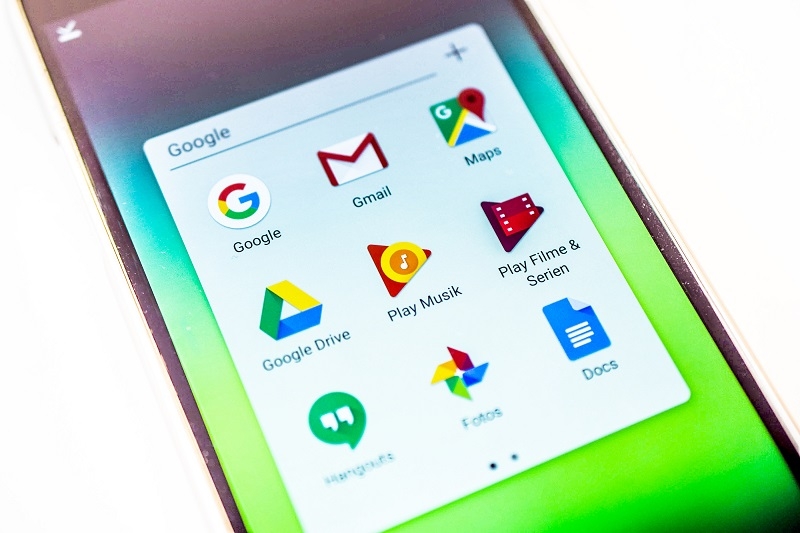
What Record-Breaking Fine for Google Means for Data Privacy
Posted on 26/07/2018

There were shades of the Microsoft antitrust ruling earlier this month when Google found itself slapped with a record €4.3 billion fine for breaking EU competition rules. The EU Commission found it anti-competitive and objected to:
- Pre-installing of the Google search app and Chrome web browser on Android powered devices. Google encourages manufacturers to do this to allow their devices to access the Google Play Store. Guess where 90% of apps are downloaded from? Yes, the Google Play Store.
- Large payments to manufacturers that ensure only Google apps are pre-installed on smart devices.
- Preventing manufacturers from selling smart devices pre-installed with a ‘forked’ version of Android.
Read the EU Commission’s press release.
While this ruling seems to be about software and antitrust, deep down it’s about how Google accesses online personal data. And that’s important to Google, because harvesting personal data is how it makes its billions each year. In 1998 Microsoft got stung because they were shipping their Internet Explorer web browser with every PC. Fast forward to today and the unbundled Internet Explorer has gone from being the most popular search engine to one used by a mere 3% of surfers. Back then, the U.S. Department of Justice objected to Microsoft’s dominant search advantage just as the EU Commission today is doing with Google.
The legal recipient of the fine is Alphabet, Google’s parent company. With the billions they haul in each year though, €4.3 billion, while not insignificant, won’t trouble them unduly. Besides, a long appeal should ensure the fine isn't paid for many years.
90 Day Countdown
What's more worrying for Google is that they have 90 days to comply with the Commission's ruling. If they don't, Google will become liable for further fines totalling as much as 5% of global daily turnover. The EU Commission plans to monitor Google over the next three months.
Development of the new Android OS due out from Google in the coming months further complicates matters.
The EU's Competition Commissioner is Margrethe Vestager. She’s built a reputation as a global regulator unafraid to stand up to the U.S. tech giants. At a Brussels press conference she declared that consumers deserve more choice. She said the ruling would shake up the marketplace and make it fairer. She hoped one day soon manufacturers will sell smart devices pre-installed with different versions of the Android OS. Unsurprisingly, Google’s CEO, Sundar Pichai, doesn't share this vision. He blogged:
"Today's decision rejects the business model that supports Android, which has created more choice for everyone, not less."
Google has been hit with a big fine before: €2.4 billion over its shopping comparison service. It’s still appealing that one. This latest ruling may do more than just wind Google though. This time the EU ruling threatens its business model Is Chrome the next Internet Explorer?
Advertising Revenue
Google makes most of its billions each year by targeting ads. The last financial year it made a cool $100 billion, according to CNN. With its control over the open-source Android OS - used by 80% of smart device users - Google enjoys a huge user base. And the beautiful part is because Android is open-source, Google doesn’t have to bill the manufacturers for the software.
The more Google apps downloaded by a smart device user, the more accurately are the user’s interests and preferences pinned down. It’s not only about using the Google search app (pre-installed Chrome). It’s also about using apps like YouTube, Gmail and Google Maps. The more you feed Google’s data-hungry algorithms, the more ultraprecise are the targeted ads it serves you. This is clearly attractive to advertisers happy to pay upwards of $50 a click for lifetime brand loyalty.
These business practices are now under threat, as Chrome and other apps may now have to be unbundled from Android. It worries Google the EU Commission will go further and impose new rules which affect how it builds Android. It might, for example, demand Chrome is no longer installed as the default browser. Instead, the user is offered an equal choice of browsers to download. Likewise, with apps and services. Instead of jumping the queue Google apps may have to wait their turn like any other.
It’s important to note that Google’s iron grip on Android and tying in of Chrome et al. could have implications for our privacy rights. Vestager and the EU Commission to date have shied away from exploring this rabbit hole. Presently, their case is about antitrust. But competition, personal data and privacy often overlap in the online global economy. As such, the pruning of the Google knotweed can only benefit those of us who value our data privacy.
Further Reading:
The EU's $5 Billion Fine Is Bad News for Google—but It's Not About the Money, by Rita Gunther, July 20, 2018
Google hit with €4.3bn Android fine from EU, BBC Technology News, July 18, 2018